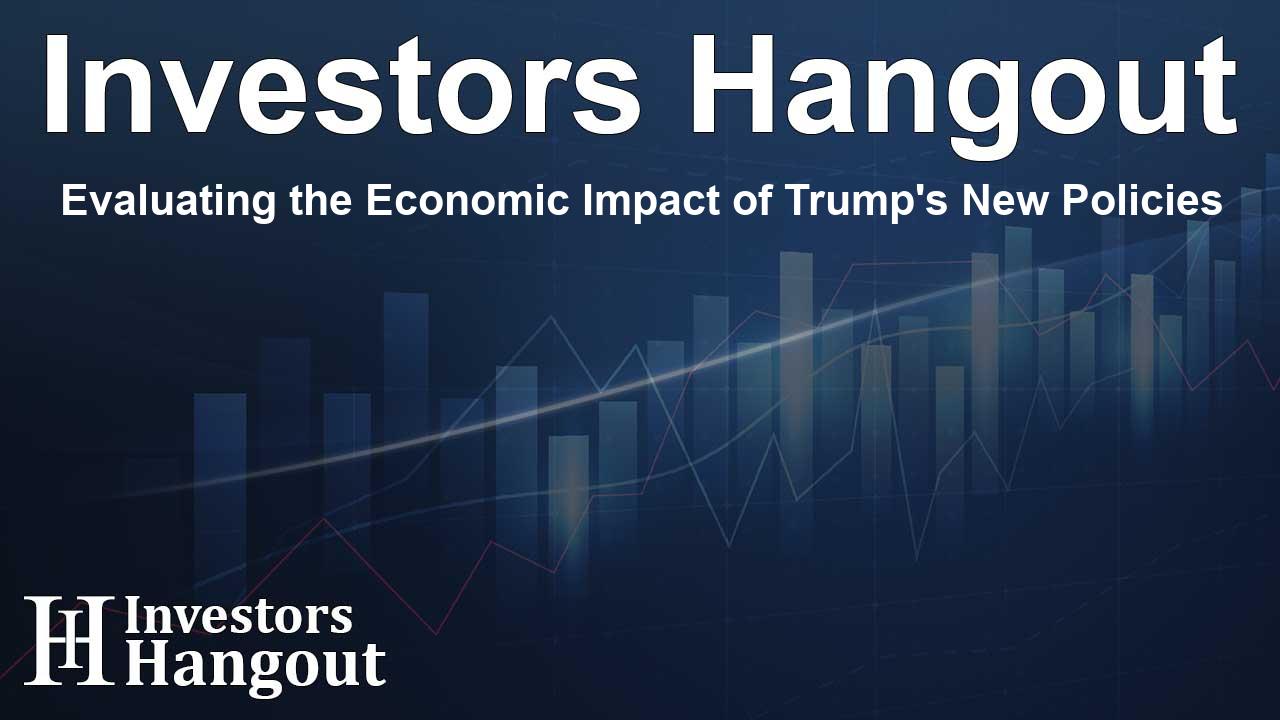Evaluating the Economic Impact of Trump's New Policies

Evaluating the Economic Impact of Trump's New Policies
The newly inducted U.S. President Donald Trump has announced his ambitious agenda aimed at reshaping the economic landscape. His strategies include lowering global oil prices, reducing taxes, and cutting interest rates. However, this vision isn't without apprehensions. Nigel Green, CEO of deVere Group, a leading financial advisory firm, raises concerns that these intentions might actually trigger inflation in the United States instead of calming it.
Risks of Inflation from Trump's Economic Strategies
Green points out that the aggressive fiscal stimulus plans, accompanied by tax reductions and a stringent tariff strategy, could elevate inflation expectations. While these policies are designed to offer a boost to the economy in the short term, there are potential long-term ramifications that could threaten financial stability. Trump's tax agenda is predicted to substantially diminish federal revenues, which could further complicate the economic outlook.
Infrastructure Investment and National Deficit
Plans for vast infrastructure spending and escalating defense budgets raise concerns over an increasing national deficit. Historically, when governments inject economies with borrowed funds, it can lead to price surges. Additionally, Trump's proposed tariffs on imported goods, a cornerstone of his economic strategy, may inflate costs for both consumers and businesses alike.
The Burden of Tariffs on Consumers
As Green explains, tariffs are akin to taxes levied on imports. Businesses that rely on global supply chains will most likely transfer these additional costs to American consumers, leading to a rise in everyday goods prices. This situation exemplifies another source of inflationary pressure faced by households.
Market Reactions and Economic Ramifications
Despite the support Trump's assertive policies have received from parts of the business sector, Green warns that the anticipated optimism could swiftly dissipate should inflationary threats materialize. He notes that although Trump seeks to achieve lower oil prices and interest rates, the prevailing policy framework suggests a divergence from that goal. Indeed, market indicators pointing towards higher interest rates could translate to increased borrowing costs for individuals and businesses alike.
Inflation: A Double-Edged Sword
Green clarifies that inflation, when managed properly, is not necessarily detrimental. Moderate inflation can signify a robust economy. However, unchecked inflation, potentially driven by protectionist measures, can diminish purchasing power and stifle economic progression. His advice to investors is to proactively prepare for the potential changes ahead.
Adapting to Changing Economic Landscapes
The deVere Group is actively encouraging its clients to explore inflation-hedging strategies, including investments in sectors expected to thrive under Trump's leadership. Green emphasizes the importance for investors and business operators to examine the implications of these impending policies at the earliest opportunity. The speed and magnitude of Trump’s agenda should not be underestimated.
A Crucial Time for Economic Vigilance
Green's overarching message is profound: the current period is pivotal for both the U.S. economy and international markets. Postponing analysis on how these policies might unfold could result in investors and businesses falling behind. Adaptation and foresight are vital in navigating the economic challenges posed by upcoming changes in policy.
Frequently Asked Questions
What are Trump's main economic proposals?
Trump's key proposals include tax cuts, extensive infrastructure spending, and tariffs on imports aimed at boosting the U.S. economy.
How can Trump's policies impact inflation?
Critics, including Nigel Green, warn that Trump's fiscal policies could lead to increased inflation due to higher national debt and costs passed on to consumers.
What does Nigel Green suggest investors do?
Green advises investors to consider inflation-hedging strategies and assess the potential impacts of Trump's economic agenda early on.
Why are tariffs considered inflationary?
Tariffs act like taxes on imports, which can lead businesses to raise their prices, consequently resulting in higher costs for consumers.
Is all inflation bad?
No, moderate inflation can signify a healthy economy. However, uncontrolled inflation can erode purchasing power and harm growth.
About The Author
Contact Ryan Hughes privately here. Or send an email with ATTN: Ryan Hughes as the subject to contact@investorshangout.com.
About Investors Hangout
Investors Hangout is a leading online stock forum for financial discussion and learning, offering a wide range of free tools and resources. It draws in traders of all levels, who exchange market knowledge, investigate trading tactics, and keep an eye on industry developments in real time. Featuring financial articles, stock message boards, quotes, charts, company profiles, and live news updates. Through cooperative learning and a wealth of informational resources, it helps users from novices creating their first portfolios to experts honing their techniques. Join Investors Hangout today: https://investorshangout.com/
The content of this article is based on factual, publicly available information and does not represent legal, financial, or investment advice. Investors Hangout does not offer financial advice, and the author is not a licensed financial advisor. Consult a qualified advisor before making any financial or investment decisions based on this article. This article should not be considered advice to purchase, sell, or hold any securities or other investments. If any of the material provided here is inaccurate, please contact us for corrections.
